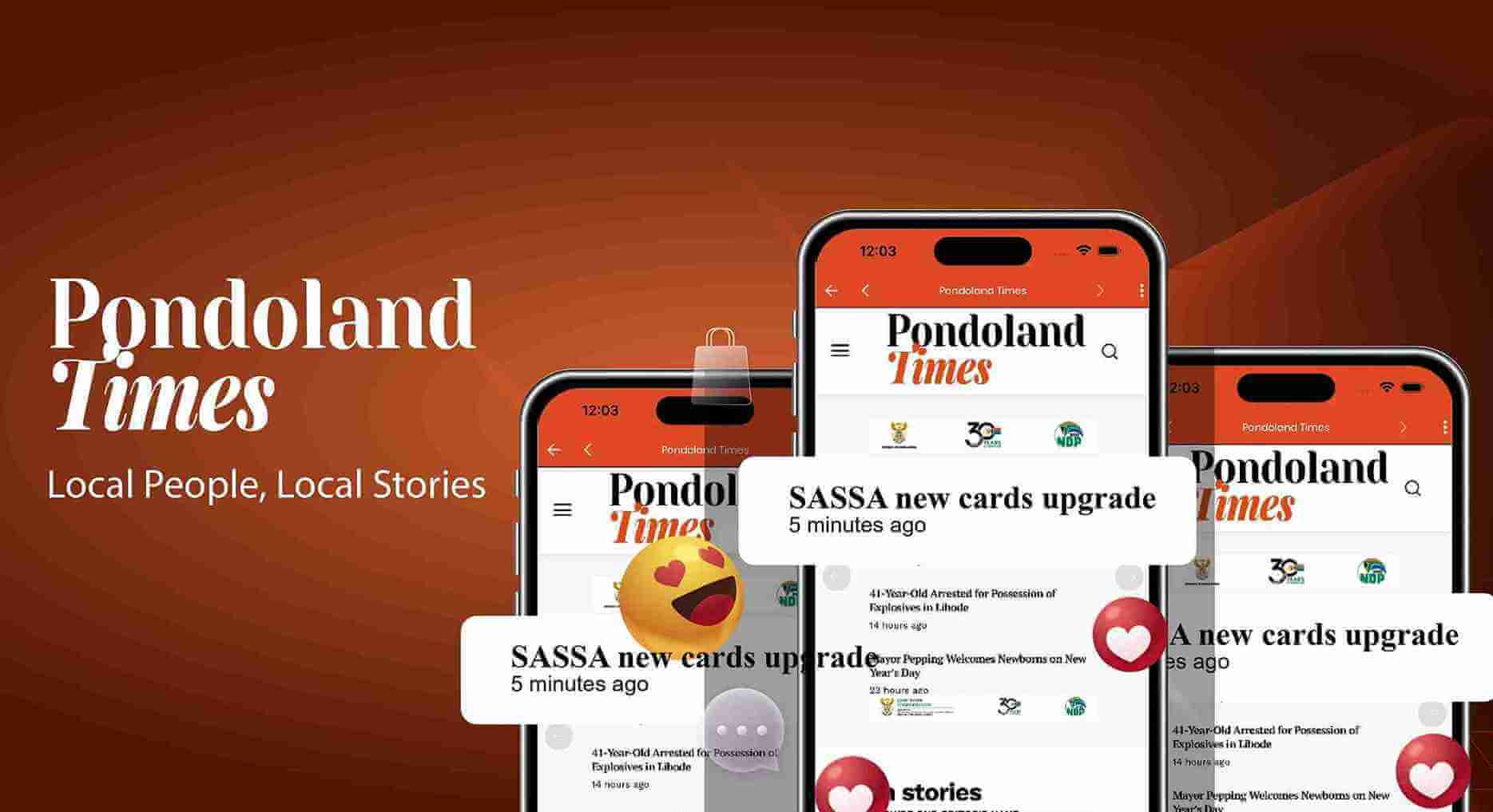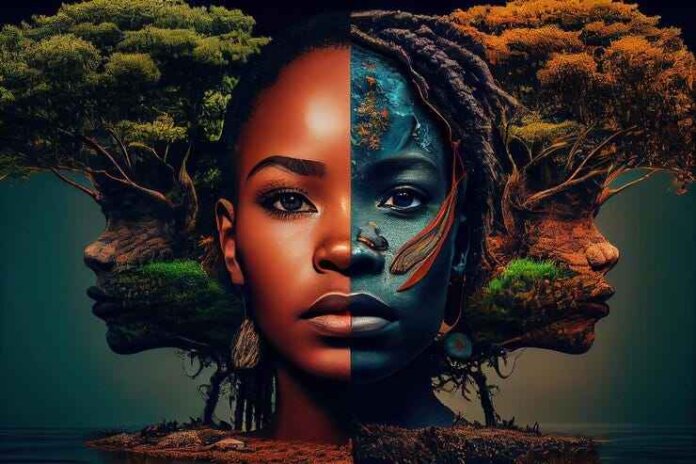In an era where WhatsApp stickers and AI-generated memes have become the answer in expressing our emotions, one cannot help but wonder about the direction in which the future is headed. Personally, I find myself yearning to have transcended to my life with my Creator before holograms and AI completely dominate every aspect of our existence. As a professional dedicated to unraveling the complexities of the mind, heart and soul by navigating through emotions, feelings, and finding the best solutions, the thought of AI replacing me with algorithmic responses is unsettling. A leader devoid of emotion, sentiment, and experience, merely comprised of codes assembled to deliver flawless responses and almost human-like reactions to any issue at hand unnerves me. I earnestly pray for contentment in the presence of my Creator before having to endure existence in such a cold, impassive, and heartless world. Nevertheless, we must prepare for the future and the trajectory of the world, even if the prospect of inhabiting such a world is undesirable, we are still obliged to coexist with it. Therefore, we adapt, evolve, learn from history, and strive to avoid repeating past mistakes. For coding to be effective, it must incorporate insights and wisdom from past events while devising innovative solutions to prevent the recurrence of past errors and refrain from dwelling in the past mistakes. I would love nothing more than to code emotional intelligence in the lives of leaders for the youth of our world to fearlessly thrive after.
This reflection serves as a contemplative appeal for a transformation in the mindset of both the youth and the policymakers of our country. It is a rallying cry, encouraging all of us to ignite and encourage a more compassionate approach that strives for progress… So while we wait a miracle. I type this; A sincere plea to all the YOUTH on JUNE 16. I implore you to cultivate compassion, kindness, strength, fairness, fortitude, wisdom, understanding, courage, love, forgiveness, mercy, patience, and become peacemakers before the resurgence of tragedies akin to the Sharpeville Massacre and violent protest outcomes are an answer once again.
Nearly five decades after the transformative tragic events that heralded a brighter future for the children of Africa, June 16 stands as a day to commemorate and honour the lives lost during the Soweto uprising, a sad consequence of unfeeling robotic responses fueled by fear. The senseless fatalities of numerous students protesting the imposition of Afrikaans as the primary language of instruction in black schools led to a catastrophic outcome due to the disregard of voices and grievances. The youth embarked on a protest march that culminated in the uprising. Through the mechanical and thoughtless execution of directives, similar to the essence of AI, violence erupted. This tragic incident captured worldwide attention and subsequently sparked a significant transformation in the lives of all young people in South Africa. While some may argue that not every youth was affected, the senseless violence had a profound impact on my own upbringing and many others beyond the black community. I strongly believe that it changed the trajectory of all young people in South Africa, shaping their perspectives, interactions, and attitudes towards equality, diversity, and communal solidarity. Hope flourishes when one can envision it and is empowered to dream. Hope has the power to change one’s perspective, find solutions, and bring about outcomes characterized by integration, acceptance, forgiveness, and harmony. This can only be achieved if it is embraced and the opposite is not transferred to foster another generation of hardened, hateful leadership.
The lessons gleaned from that era remain relevant and applicable to today’s youth, emphasizing the virtues of confidence, unity, and the courage to stand up for one’s beliefs. The youths of 1976 in South Africa exemplified remarkable bravery and resilience in their struggle against a racially biased educational system designed to marginalize and debase black students. Presently, a significant portion of young people across the African continent continue to grapple with dire poverty and are raised in environments that offer scant prospects and offered sub standard education. Most lack ethical role models at home and in their communities and harbour doubts regarding their significance and purpose relative to others. In light of these challenges, perhaps an AI-generated response would be more effective, as it could provide calculated solutions based on coded algorithms, thereby averting violence, inequality, racial tensions, and loss of life and force empathy.
The primary challenges confronting the youth in South Africa encompass issues such as poverty, discrimination, unemployment, substance abuse, and violence, which they encounter daily. Regrettably, the valuable lessons have not been heeded, and the leaders in this beautiful nation continue to disappoint the majority of the youth, transcending beyond racial boundaries. The harsh realities faced by the young people in South Africa extend to their aspirations for self-improvement and their desire to make positive contributions to society. Nevertheless, the journey ahead is arduous, and there is a long road to travel before attaining relief. And yet a greater problem is here than youth been taught in a language that belonged to the oppressor, simply because since that fatal day on a winter morning in South Africa 48 years ago, equality is still unattainable, the disparities persist, with the affluent minority retaining the lion’s share of resources, and the widespread prevalence of unemployment, poverty, economic disenfranchisement, fear, social exclusion, and despair continues to afflict the majority of all youth.
The prevalent issues such as crime rates, substance abuse, and violence exemplify the grim reality that defines the lives of young people today in almost every community irrespective of ethnicity. The prevailing social strains and mental health challenges have led to depression, despondency, reliance on substance abuse, and tragically, incidents of suicide. Despite numerous social interventions aimed at curbing risky behaviours among South African youth, they still engage in unsafe practices such as unprotected sex, excessive drinking, drug abuse, violence, and endure substandard living conditions in poorly equipped schools, homes, and communities. The answers they have found to no hope and lack of exemplary examples of leadership. A substantial portion of the South Africans resides in impoverished conditions, living shantytowns and squatter camps, enduring unsafe housing conditions, facing increased instances of domestic and gender-based violence, and contending with inadequately resourced medical facilities and educational institutions.
While reports may highlight integrated schools, academic achievements, and the increasing presence of youth in various economic sectors, the stark reality remains that many young individuals are relegated to homelessness, panhandling at intersections, peddling drugs, or resorting to innovative business endeavors, such as swiftly cleaning windshields at traffic lights. This sales pitch often involves prompt service, immediate payment, and the looming threat of hijackings or robberies, all within the brief duration of a traffic light cycle.
Sadly for many it’s a one way street in every direction. Many of our youth face the reality of roaming around in the dark, trying to find a little peak of sunshine. The youth grapple with navigating through the darkness of their lives in search of a glimmer of hope. Echoing the sentiments of Nelson Mandela, who emphasized that “Our children are our greatest treasure. They are our future. Those who abuse them tear the fabric of our society and weaken our nation,” we find ourselves on the cusp of a new era under a newly appointed president following national elections. The implications of this transition for our country, our people, and especially our youth are profound. What does that glimmer of hope look like?
As I write this, I firmly believe that the most valuable asset of South Africans is our unwavering sense of HOPE and its YOUTH. Consequently, as the current generation of adults, we bear the responsibility of eradicating the prevailing sense of despair and disillusionment among the youth. It is incumbent upon us to recognize that today’s youth will soon emerge as tomorrow’s leaders, and we owe it to the forthcoming generation to break the cycle of abuse and fulfill the promise of a Rainbow Nation, fostering a brighter future for all.
Therefore, I implore the youth to reflect on their actions and endeavour to alter the current trajectory. What kind of leaders are you being groomed into? What sort of leaders do you aspire to become? Perhaps embracing virtues such as acceptance, compassion, peace, and fairness could serve as a transformative catalyst. These four pillars of Emotional Intelligence contain the answers we seek. By embracing acceptance, we can transcend the barriers of colour that divide us; by embodying compassion, we can alleviate poverty and homelessness; by fostering peace, we can ensure safety and prosperity for all; and by upholding fairness, we can guarantee that no individual is deprived of essential services or subjected to deplorable conditions.
It is imperative that we encourage the youth through our actions to persevere through challenges, to avoid repeating past mistakes, and to forge a path towards a brighter future. While we commemorate YOUTH DAY and honour the lives lost as a loud call to action, we must acknowledge that the struggle for liberation in education, employment, poverty alleviation, and equality is far from over.
Despite the dismal social conditions confronting many youths, a glimmer of hope persists. As a new dawn emerges with the appointment of our country’s new leadership, I implore our new leaders to contemplate the type of leaders they are, who they aspire to become and who they wish to imitate. Could it truly be as simple as embodying the change you wish to see in the world? Is it feasible to become leaders whom young people seek to emulate? Is it conceivable that we can resolve conflicts and implement solutions before irreparable harm is done? Will you create space for the youth to articulate their visions and actively engage in the healing and reconstruction of a brighter tomorrow? Is it within the realm of possibility for you, as leaders, to demonstrate fairness and compassion, fostering an environment of peace and equality?
So I will continue to pose the question to our leaders: What steps are you taking to alter the current trajectory and become the Leaders we hope would be the change we so desperately need to see? Perhaps, embracing virtues such as acceptance, compassion, peace, and fairness could pave the way for transformative change. The key to addressing these questions lies in the mindsets we adopt when pursuing change and the hope we hold onto while we embody a spirit of servant leadership. We cannot serve a people when all we want to elevation, power and wealth for ourselves.
In conclusion, I remain resolute in my stance against the encroachment of AI in the realm of emotional expression, be it through emojis or stickers. Use your emotional savvy, it’s a superhuman quality, because its so rare. Be the change you want to see.
Fro me as a parent, mom and business woman, I will continue to do my part to advocate for a unified South Africa. A South Africa that every older person is focused on shaping a future where every young person is afforded the opportunity to learn, grow, and contribute to a society founded on justice and equity. Let us of an “older youth” inspire to teach and cultivate compassion, kindness, strength, fairness, fortitude, wisdom, understanding, courage, love, forgiveness, mercy, patience, and to be the peacemakers, learning from the past but not dwelling on it.
Without a doubt, the youth of South Africa harbour a profound sense of anticipation for the future. It is a fight given from the Creator within all of us. Although they may harbour reservations about the efficacy of current leadership, there remains a glimmer of hope. Therefore, I implore the YOUTH to make your voices heard today and convey a message to the older generation guiding the nation, signal to them that change is possible, and that South Africa can indeed evolve into a prosperous, secure nation where every citizen strives for the betterment of others. In the words of Samuel Ullman, “Youth is not a time of life – It’s a state of mind.” So its never too late to want a better future for all, young and old.














